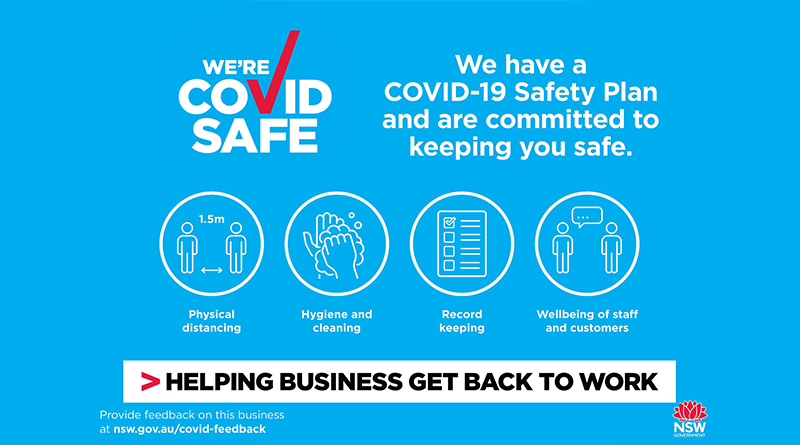With all restrictions due to end before Christmas, once 70% and 80% vaccination rates are reached, it is critical that employers ensure that their employees are not exposed to undue risk of contracting Covid-19. With the disease detected in the Tweed, now more than ever should employers protect themselves from potential litigation (should an employee contract Covid-19 in the workplace).
Ms Danny King, an expert in employment and Industrial Relations Law and Principal of Danny King Legal, recently published an article for the University of New South Wales. She has pointed to two broad issues. Firstly, workers’ compensation which is subject to legislation and a comprehensive insurance regime. Secondly, the breach of common law- duty of care.
- The risk of harm to an employee, should they contract COVID-19, is now most likely considered to be a “reasonably foreseeable” risk – which means that all employers should be taking precautions now to try to stop their staff contracting the illness;
Under WHS Law, all employers or businesses are required to manage the risk of COVID-19 to workers and others in the work environment. SafeWork NSW – Covid-19 Guide.
SafeWork NSW considers vaccination a high order risk control measure. When a COVID-19 vaccine is generally available, businesses may require workers to be vaccinated for COVID-19 if reasonably practicable to do so.
An article that was published for Royal Australian College of General Practitioners (RACGP) (20/09/21) , reports that from the beginning of June 2021 (the Delta Outbreak):
- 4654 people were hospitalised
- 153 Fully vaccinated (3.3%)
- 844 Partially vaccinated (18.1%)
- 3,657 Unvaccinated (78.6%)
- 441 treated in ICU
- 8 Fully vaccinated (1.8%)
- 70 Partially vaccinated (15.9%)
- 284 Unvaccinated (64.4%)
- 79 Undetermined Vaccination Status
Professor Dimity Pond, an honorary professor of general practice at the University of Newcastle, said the figures in the surveillance reports correspond with expectations about the vaccines. Dimity also stated ‘It’s really hard data. It can’t be interpreted in any way other than vaccination means that you’re less likely to die.’ It’s uncontroversial.
Further, with the opening up of NSW in relation to the 90% vaccination rate, cases and deaths are restricted largely proportioned to the unvaccinated. There are, however, still rare cases of vaccinated people becoming seriously ill from the disease. In light of this, should an unvaccinated worker spread the disease within the workplace and a vaccinated worker contract the disease or worse, affecting their ability to work and earn in the long term, a compensation claim is seen as highly likely.
How do I prevent the risk of being sued by my employee?
To mitigate your risk as an employer, the NSW Government provides online resources on how to develop COVID-19 Safety Plans. To access this information, click the link: https://www.nsw.gov.au/covid-19/covid-safe
You may also conduct a Workplace Health and Safety Assessment and complete a Risk Register. This can can be downloaded from the following link: https://www.safeworkaustralia.gov.au/doc/model-code-practice-how-manage-work-health-and-safety-risks
Finally, you should consult an Occupational Health & Safety professional such as Lydia Plim of Safety Makers, to discuss a risk minimisation strategy for your employees in relation to to contracting Covid-19 in the workplace including yourself. Therefore, ensuring you are doing everything you can to protect yourself from exposure to possible litigation. To contact Lydia Plim, click the following link: http://murwillumbahchamber.com.au/members-directory/name/lydia-plim/
As of 4th October 2021, the following further key public health advice and obligations for businesses were announced by the NSW Government including:
- Businesses will be responsible for taking reasonable measures to stop unvaccinated people from entering. For example: Prominent signage, QR code check-ins, staff checking vaccination status on entry and only accepting valid forms of documentation.
- Authorised officers will monitor businesses reopening, particularly those with vaccination requirements.
- Penalties including on-the-spot fines may apply for non-compliance – up to $1000 for individuals and $5000 for businesses.
- If a staff member tests positive, they must isolate for 14 days and follow advice from NSW Health.
- Businesses must inform NSW Health if three or more staff members test positive over a seven day period.
- NSW Health guidelines will enable businesses to assess workplace risk if a COVID-19 case is identified and confirm actions to be taken.







